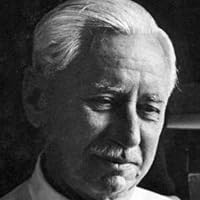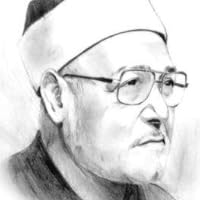Muhammad Pbuh Quotes
Quotes tagged as "muhammad-pbuh"
Showing 1-29 of 29

“The word of Mohammad is a voice direct from nature's own heart - all else is wind in comparison.”
―
―
“People who worry that nuclear weaponry will one day fall in the hands of the Arabs, fail to realize that the Islamic bomb has been dropped already, it fell the day MUHAMMED (pbuh) was born.”
―
―

“If we rated greatness by the influence of the great, we will say "Muhammad is the greatest of the great in history”
―
―
“The Message of Mohammad is not a set of metaphysical phenomena. It is a complete civilization.”
―
―

“Among leaders who have made the greatest impact through ages, I would consider Muhammad before Jesus Christ.”
―
―
“Muhammad introduced the concept of such Glorious and Omnipotent God in Whose eyes all worldly systems are pieces of straw. Islamic equality of mankind is no fiction as it is in Christianity. No human mind has ever thought of such total freedom as established by Muhammad.”
―
―
“Mohammad never assigned himself a status more than a common man and a messenger of God. People had faith in him when he was surrounded by poverty and adversity and trusted him while he was the ruler of a great Empire. He was a man of spotless
character who always had confidence in himself and in God's help. No aspect of his life remained hidden nor was his death
a mysterious event.”
―
character who always had confidence in himself and in God's help. No aspect of his life remained hidden nor was his death
a mysterious event.”
―
“He laid the foundation of a universal government. His law was one for all. Equal justice and love for everyone.”
―
―

“There has been more bloodshed in the name of God than for any other cause. And it is all because people never attempt to reach the fountain-head. They are content only to comply with the customs of their forefathers and instructions on some books, and want others to do the same. But, to explain God after merely reading the scriptures is like explaining the city of New York after seeing it only in a map.”
― Love, God & Neurons: Memoir of a scientist who found himself by getting lost
― Love, God & Neurons: Memoir of a scientist who found himself by getting lost

“The Qur’an, in other words, had been revealed into an unwelcoming world that would instinctively reject it. Nor was the prophet through whom it was inspired prepared for the responsibilities of its guardianship. He had been caught completely off guard and was unprepared for the immense obligation before him. As he fled down the mountain, Muhammad trembled while repeatedly whispering, “Iqra . . . Iqra . . . Iqra. . . .”
― The Life of the Qur'an: From Eternal Roots to Enduring Legacy
― The Life of the Qur'an: From Eternal Roots to Enduring Legacy

“ان سر العظمة في حياة محمد يرجع الى انه انسان كامل، بلغ ذروة الارتقاء البشري عن طريق العبودية الصحيحة لله. فهو لم يزعم يوما أن الله حل فيه، او ان بينه و بين الله نسبا يخلع عنه وصفا من أوصاف البشرية المعتادة، كلا، انه واحد من الناس تخيرته العناية العليا ليبلغ عن الله، و ليكون رائدا يتقدم صفوف التائبين الى ربهم.”
― الجانب العاطفي من الإسلام
― الجانب العاطفي من الإسلام

“....His trust in God was as firm as a mountain. Indeed, mountains might come crashing down, and yet the Prophet’s faith would remain unshaken. At moments of extreme danger, he was full of confidence that the truth he preached would triumph. At the moment of his greatest triumph he showed humility and gave due thanks to the Almighty. With yesterday’s enemies – the very ones who plotted his assassination and determined to exterminate his community – at his mercy, he was remarkably magnanimous. The sight that gave him most satisfaction at the end of his blessed life was that of his followers offering a congregational prayer in his mosque. He felt then that he had delivered God’s message and fulfilled his task.”
― Muhammad: His Character and Conduct
― Muhammad: His Character and Conduct
“The muslims never had any intention to seize the wealth and property of people, or to kill them through bloody wars; they never had any desire to employ compulsion in their approach to propagating islam: on the countrary, their sole purpose was to provide an atmosphere of freedom in ideology or religion: Then whosoever wills, let him believe, and whosoever wills, let him disbelieve.”
― الرحيق المختوم
― الرحيق المختوم

“Christ attained the ultimate spiritual oneness through prayer and devotion, Moses and Mohammed through prayer, Buddha and all the Indian sages through intense meditation and so did I. And so can you.”
― Love, God & Neurons: Memoir of a scientist who found himself by getting lost
― Love, God & Neurons: Memoir of a scientist who found himself by getting lost

“Just like love becomes consummated upon the attainment of orgasm, all the faith and divinity in the world reach their ultimate existential potential upon the attainment of Absolute Unitary Qualia or simply Absolute Godliness.”
― Love, God & Neurons: Memoir of a scientist who found himself by getting lost
― Love, God & Neurons: Memoir of a scientist who found himself by getting lost

“The transcendental state of Absolute Oneness sets the human mind free.”
― Love, God & Neurons: Memoir of a scientist who found himself by getting lost
― Love, God & Neurons: Memoir of a scientist who found himself by getting lost

“It was through Allah’s mercy that you [Muhammad] have been able to deal with them so gently. If you had been stern and hard-hearted, they would surely have dispersed from around you.”
― The Leadership of Muhammad: A Historical Reconstruction
― The Leadership of Muhammad: A Historical Reconstruction

“Once you attain the state of Absolute Oneness or Non-Duality, you become one of those spiritual legends that humanity so gloriously venerates as the founding fathers of religion.”
― Love, God & Neurons: Memoir of a scientist who found himself by getting lost
― Love, God & Neurons: Memoir of a scientist who found himself by getting lost

“...What remains to be said is that no portrait of the Prophet’s character will do him justice. He was superior to anything we can imagine. Perhaps the description that comes closest to the truth is that he was “the teacher of perfect goodness.” May God reward him well for having taught that perfect goodness to humanity.”
― Muhammad: His Character and Conduct
― Muhammad: His Character and Conduct

“Once you emerge from the state of absolute divinity, the self within you becomes Christ – it becomes Buddha – it becomes Moses – it becomes Krishna. The sage who emerges from the state of non-duality begins to perceive the self as Christ, not Christ as Christ – the self as Moses, not Moses as Moses – the self as Mohammed, not Mohammed as Mohammed – the self as Krishna, not Krishna as Krishna.”
― Love, God & Neurons: Memoir of a scientist who found himself by getting lost
― Love, God & Neurons: Memoir of a scientist who found himself by getting lost

“Once the lotus of your inner divinity gets full-blown and you reach the mental state where all the religious giants of human history experienced the all-encompassing sense of godliness, the exuberance of the human mind turns infinite. Awakening into that state makes all the perceptual limitations of the mind disappear, just like a bucket of muddy water turns crystal-clear once poured into the ocean.”
― Love, God & Neurons: Memoir of a scientist who found himself by getting lost
― Love, God & Neurons: Memoir of a scientist who found himself by getting lost

“He (Mohammed) was an ordinary man just like any other man. And as such his personal instincts, urges, drives as well as his philosophical goodness bubbled to the surface of his consciousness when he attained the Absolute Unitary Qualia.”
― The Islamophobic Civilization: Voyage of Acceptance
― The Islamophobic Civilization: Voyage of Acceptance
“Muslims should always be ready to struggle for what they believe in, for faith is not a matter of words but of deeds.”
― The Life of Muhammad: His Life Based on the Earliest Sources
― The Life of Muhammad: His Life Based on the Earliest Sources

“The identity of Shaitan of the Islamic tradition is crucial. By the time Muhammad (Peace be upon him) was reciting the Qur'an, they were calling Shaitan 'the Old Serpent (Dragon)' and 'Lord of the Abyss.' The Old Serpent or Old Dragon is, according to experts such as E.A. Budge and S.N. Kramer, Leviathan. Leviathan is Lotan. Lotan traces to Tietan. Tietan, the authorities in Near Eastern mythology tell us, is a later form of Tiamat. According to the experts, the Dragon of the Abyss called Shaitan is the same Dragon of the Abyss named Tiamat. Scholars specializing in Near Eastern mythology have stated this repeatedly.”
― The Sun at Midnight: The Revealed Mysteries of the Ahlul Bayt Sufis
― The Sun at Midnight: The Revealed Mysteries of the Ahlul Bayt Sufis

“Maybe Muhammad was an absent-minded person needing Allah to repeat Himself ad nauseam in the Quran while the repeated abrogations therein suggest that the All-Wise latter was indeed fickle-minded.”
―
―
All Quotes
|
My Quotes
|
Add A Quote
Browse By Tag
- Love Quotes 97k
- Life Quotes 75.5k
- Inspirational Quotes 72.5k
- Humor Quotes 43.5k
- Philosophy Quotes 29.5k
- Inspirational Quotes Quotes 27k
- God Quotes 26k
- Truth Quotes 23.5k
- Wisdom Quotes 23.5k
- Romance Quotes 23k
- Poetry Quotes 22k
- Death Quotes 20k
- Happiness Quotes 18.5k
- Life Lessons Quotes 18.5k
- Hope Quotes 18k
- Faith Quotes 18k
- Quotes Quotes 16.5k
- Inspiration Quotes 16.5k
- Spirituality Quotes 15k
- Religion Quotes 15k
- Motivational Quotes 15k
- Writing Quotes 14.5k
- Relationships Quotes 14.5k
- Life Quotes Quotes 14k
- Love Quotes Quotes 13.5k
- Success Quotes 13.5k
- Time Quotes 12.5k
- Motivation Quotes 12k
- Science Quotes 11.5k
- Knowledge Quotes 11k



